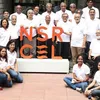CII’s annual knowledge summit was held entirely online this year, and was titled CII Global Knowledge Virtual Summit 2020: Knowledge in the Age of Artificial Intelligence. It was also supported by the Knowledge Management Global Network (KMGN).
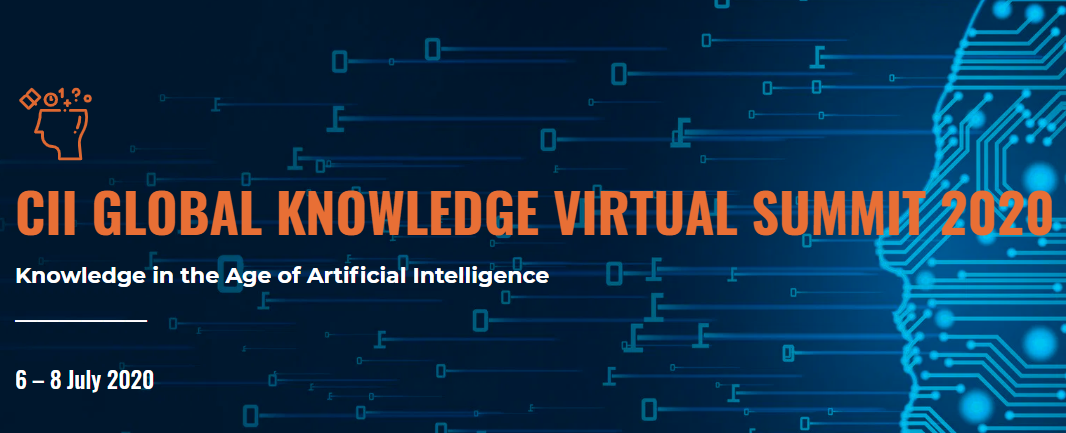
YourStory was the media partner for the flagship summits in 2019 and 2020. See our 15-part article series, which includes Knowledge Leadership, KM in the Age of AI, Gamification, Storytelling, Knowledge Sharing in the COVID-19 Era, and Eye on AI.
YourStory also moderated the panel on Knowledge Excellence: Winners of the Global MIKE Awards. (See my book series The KM Chronicles for case studies of earlier winners of the MAKE Awards and Singapore KM Excellence Awards.)
Bina Nusantara (BINUS) University traces its roots to the Computer Education Institute (originally named Modern Computer Course (MCC), which was founded in 1974 in a car garage). Today, BINUS University (BU) is a private higher education institution with over 30,000 students, active industry links with approximately 5,000 companies, and partnerships with more than 190 universities around the world.
The university has been ranked among the world’s top 1,000 universities according to the 2020 QS World University Rankings (WUR), and top 500 universities in the QS Graduate Employability Rankings. It is the only university in Indonesia that has successfully attained an overall of 4 QS Stars in 2018, with the maximum five-star ratings in the aspects of teaching, employability, facilities, inclusiveness, and social responsibility.
It is ranked as Indonesia’s top private university, and is the only private university ranked in the Top 50 Southeast Asian Universities. BINUS University is the first private university to get permission to conduct distance learning in Indonesia.
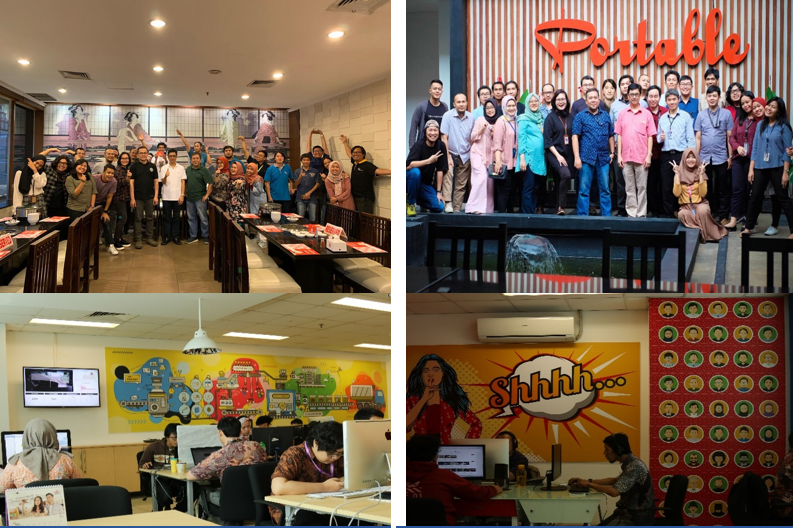
It is the only institution from Indonesia to win the Global MIKE Award two times in consecutive years, the Asian MAKE Study Winner three times, and Indonesian MAKE Award Winner eleven times (Most Admired Knowledge Enterprise).
Associate professor Elidjen is the Knowledge Management and Innovation Director at BINUS University. The knowledge management (KM) team also includes Budi Yulianto (Knowledge Product Manager), Bonny (Knowledge Multimedia Manager), Danu Widhyatmoko (Digital Media Development Manager), Gredion Prajena (Knowledge System Manager), and Karto Iskandar (Knowledge Innovation Manager).
Elidjen joins YourStory in this in-depth conversation on BINUS University’s knowledge journey, education and research impacts, and next steps. See also our earlier profiles of MIKE award winners Tata Steel, Cognizant Technology Solutions, Afcons Infrastructure, Petroleum Development Oman, and Mobarakeh Steel Company.
YourStory [YS]: How would you describe your KM journey in terms of the phases, from your early years to today?
Elidjen: With a vision of becoming a world-class university, BINUS University strives to continuously improve and innovate in providing service excellence to all of its stakeholders and gaining global recognition.
Some of the programmes are conducted entirely in English. There are eight campuses in greater Jakarta, one campus in Bandung (West Java province), and another in Malang (East Java province). It offers 49 study programmes for diplomas and undergraduate degrees, six for master’s degrees, and two for doctoral degrees.
The implementation of KM has been done since the inception of BINUS University. We were the first university in Indonesia to implement a quality management system and received an ISO 9001 certification in 1997. Massive tacit–explicit and embedded–embodied knowledge conversions were carried out with the implementation of the quality management system, even though the technology that supports the process of sharing knowledge was still relatively limited.
The Intranet-based KM Portal was built using Microsoft Share Point technology, followed by internet-based and Mobile KM Portal to expand knowledge-sharing. We implemented a Digital Asset Management System (DAMS) for faster flow of information and knowledge. We also apply collaboration tools to support co-creation and collaborative innovation.
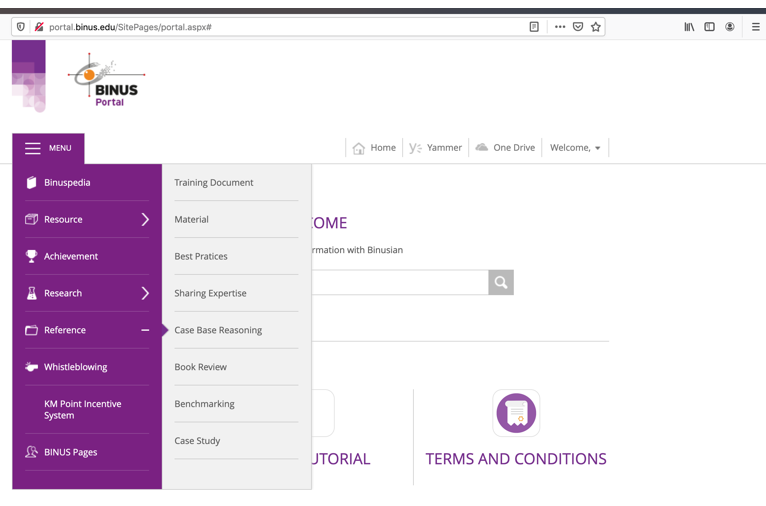
YS: How has KM benefitted your university?
Elidjen: KM helps transform BINUS University so that it expands on the stipulated vision and mission. Our KM initiatives strengthen our innovation capability so we can achieve and maintain a sustainable competitive advantage.
BINUS University has the most SCOPUS-indexed papers of any Indonesian private university. As of July 14, 2020, there are 3.954 SCOPUS-indexed papers. In the last eight months, there has been an increase of nearly 50 percent in published research papers.
YS: Can you give some examples of processes where knowledge is embedded in the workflow, and other processes that require extra activity to manage or create knowledge?
Elidjen: Embedded knowledge can be found in various forms such as workflows, processes, manuals, regulations, products, codes of ethics, routines, and structures. This includes, for example, a procedure which regulates that students who are 30 minutes late will be marked as absent.
This regulation is programmed in the BINUS University Learning Management System (LMS) called BINUSMAYA. Such embedding can instil and enforce more discipline. Best practices to manage lectures in order to succeed are embedded in procedures that have been systemised in BINUSMAYA.
YS: What are some communities of practice (CoPs) you have that involve knowledge inputs from external members?
Elidjen: BINUS University has a systematic process for capturing internal and external knowledge, organising it, and sharing it throughout our organisation. We developed internal networks and connectivity to encourage sharing knowledge processes.
The Research and Technology Transfer Office (RTTO) was established in 2015. It governs nine Research Interest Groups (RIG) in domains like bioinformatics, photonics, food biotechnology, open source ERP, embedded systems, education technology, and IoT.
Each RIG is categorised as a Community of Practice (CoP). Intense sharing of knowledge takes place in these groups, resulting in high-impact research and scientific publications in national and international platforms. The heterogeneity of research topics in RIG lays the foundation for students’ research at all levels, and enhances research collaboration between students and faculty.
Every year, a RIG Expo is held to increase the intensity of knowledge sharing across RIGs. This includes theory as well as real experiences found in the research activities. Research collaboration is carried out both inside and outside the country with those who support Quadruple Helix Innovation (industry, government, academia, civil society).
In 2011, BINUS University, together with 20 other universities, announced the formation of the Nationwide University Network in Indonesia (NUNI). It has a work programme for the development of student mobility, lecturer mobility, and collaborative research programmes to develop a knowledge-sharing environment.
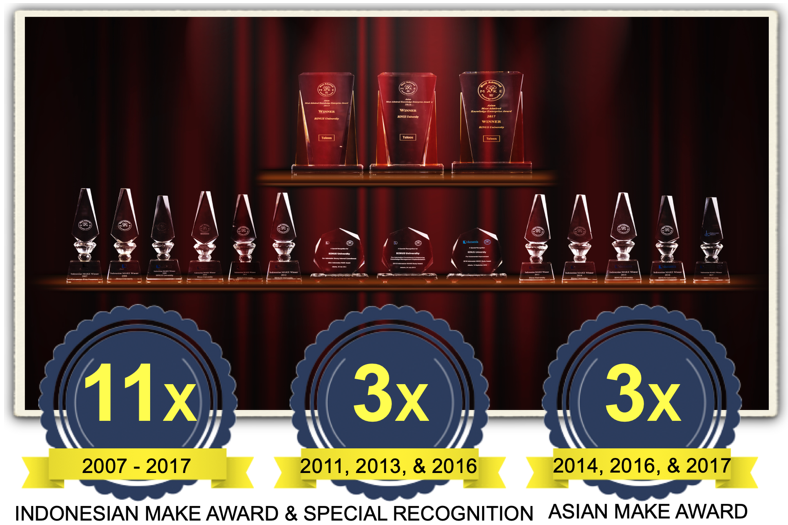
YS: Tell us about your KM team – what are the roles and responsibilities?
Elidjen: The leadership of BINUS University understands that sustainable competitive advantage cannot be achieved by out-do strategies or acting better than competitors, but out-know strategies or better knowledge strategies than other institutions.
This understanding underlies the establishment of the Knowledge Management and Innovation Directorate (KM&I) on August 15, 2013. It consisted of one KM&I Director and two Managers (Corporate Knowledge Center Manager and Academic Product Knowledge Center Manager).
Effective January 2016, the KM&I Directorate was developed with a new organisational structure consisting of one KM&I Director and five Managers: Knowledge Innovation Manager, Product Knowledge Manager, Knowledge System Manager, Knowledge Multimedia Manager, and Digital Media Development Manager.
This Directorate was formed so that BINUS University is able to build and maintain a good organisational KM system and foster a culture of innovation. This helps create value that can produce competitive advantage and excellence in performance.
YS: It is said that KM helps incremental improvement, but ‘big leap’ innovation requires different teams/processes/culture. How are you structuring these two types of activities in your organisation?
Elidjen: BINUS University pursues a high level of both explorative and exploitative activities. We exemplify an ambidextrous innovation strategy to simultaneously pursue incremental and radical innovation within the same organisational unit.
Exploitation innovation strategy is applied to refine existing products and services that we delivered to our stakeholders. Existing knowledge and new knowledge are applied quickly to enable incremental innovation.
Explorative innovation strategy is applied to develop new products, processes, or technologies (radical innovation). BINUS University invests heavily in creating self-generated knowledge and co-developed knowledge with external partners (rather than bought-in knowledge) to enhance our ability to achieve radical innovation.
All employees are involved in innovation because innovation has become an activity that we must do. The Research Interest Groups (RIGs) described earlier conduct research to improve our innovation capabilities.
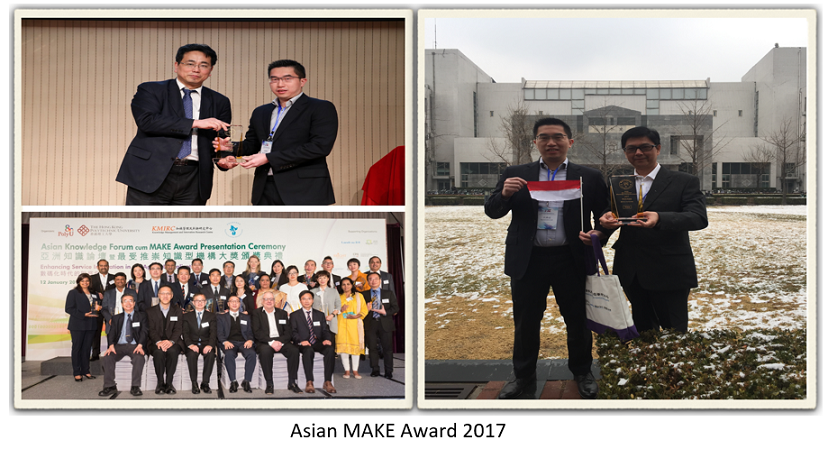
YS: What are some ways in which you are leveraging AI along with KM?
Elidjen: AI-powered knowledge platforms drive new insights. Incorporating AI into KM strategies enables the push of the right knowledge to the right people at the right time. Utilisation of KM using AI enables creating and delivering value from knowledge rather than just sharing and preserving knowledge.
As another example, our Bioinformatics and Data Science Research Center collaborates with various institutions from within and outside the country to study and develop AI-based applied applications. We have also implemented a command centre where strategic information for decision-making is forwarded to relevant leaders.
YS: What are some emerging trends which will affect the future of your KM strategy?
Elidjen: Utilisation of KM has shifted from merely sharing and preserving knowledge to creating and deriving value from knowledge. AI-powered knowledge platforms are increasingly important to support insight-driven organisations.
The human side of knowledge management still plays an important role, in addition to technology infrastructure.
YS: How has the COVID-19 crisis impacted knowledge sharing in your university?
Elidjen: Change and uncertainty are external factors that we cannot avoid. We focus on how to learn faster to reduce knowledge gaps, utilise knowledge, and build and strengthen a culture of continuous innovation. This encourages and enables our knowledge workers to innovate for achieving and maintaining a sustainable competitive advantage.
The COVID-19 crisis has forced universities around the world to move online for teaching, research and collaboration. Our technology, processes, and culture have helped us in this shift.
For example, the self-developed BINUS LMS (Learning Management System), known as BINUSMAYA, helps lecturers in many ways. This includes management of course materials, learning outcomes, teaching and learning strategies, and assessment.
There are seven types of discussion forums: lecturers with students, lecturers with one-class students, lecturers with a group of students, lecturers with all students who take the same subject, all parallel classes, students and industry, and lecturers who teach the same subject.
BINUS University also developed its own LMS to support Binus Online Learning (BOL), which organises distance learning. We are now developing Mobile BINUSMAYA, version 7. BINUS University's experience in applying blended learning by utilising BINUSMAYA over the decades facilitates the transition to 100 percent online learning systems.
Learning is also supported by the Library Knowledge Center (LKC), which functions as both a library and knowledge centre with print and online content. It also offers research services and community forums.
BINUS University routinely organises webinars for participants across all our campuses. Sharing of knowledge is also done through BINUS TV, a community-based streaming TV that has been operating since 2010. It offers 12 hours of broadcast time daily with High Definition (HD) broadcast quality.
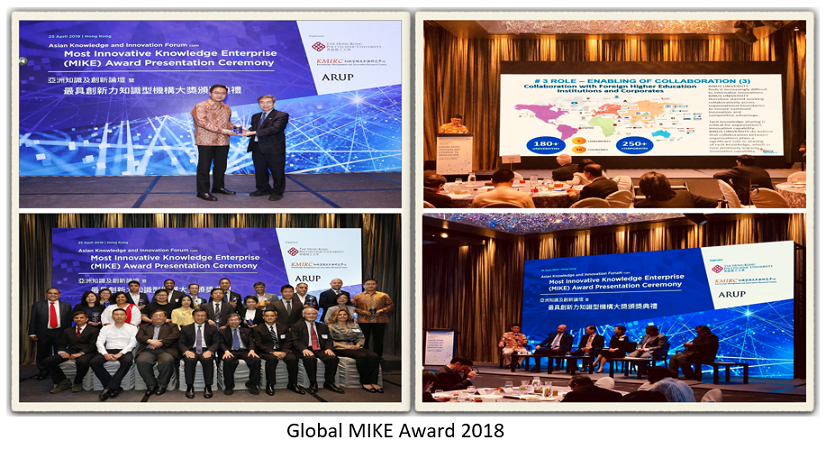
YS: What are the next steps in your KM journey?
Elidjen: BINUS University, as a knowledge-intensive organisation, will consistently adopt the MIKE (Most Innovative Knowledge Enterprise) framework, which focuses on more effective Knowledge Management and Intellectual Capital Management.
We are continuously building the ability to identify the relevant knowledge to manage, and extract value out of this knowledge.
YS: Based on your experience, what are your top three tips on how organisational leaders should harness KM?
Elidjen:
· Keep on applying Knowledge Management (KM) and Intellectual Capital (IC) Management effectively because they have been proven as approaches that have a great impact on organisational performance.
· AI and KM are two sides of the same coin. KM allows an understanding of knowledge to occur, while AI provides the ability to renew, use, and create knowledge in more sophisticated ways. We need to understand how to use both to improve the performance of our organisation.
· Develop an integrated approach in terms of technology infrastructure, people, and leadership systems.
(Edited by Megha Reddy)
Want to make your startup journey smooth? YS Education brings a comprehensive Funding Course, where you also get a chance to pitch your business plan to top investors. Click here to know more.
Link : https://yourstory.com/2020/07/cii-knowledge-management-binus-university
Author :- Madanmohan Rao ( )
July 30, 2020 at 03:18PM
YourStory

